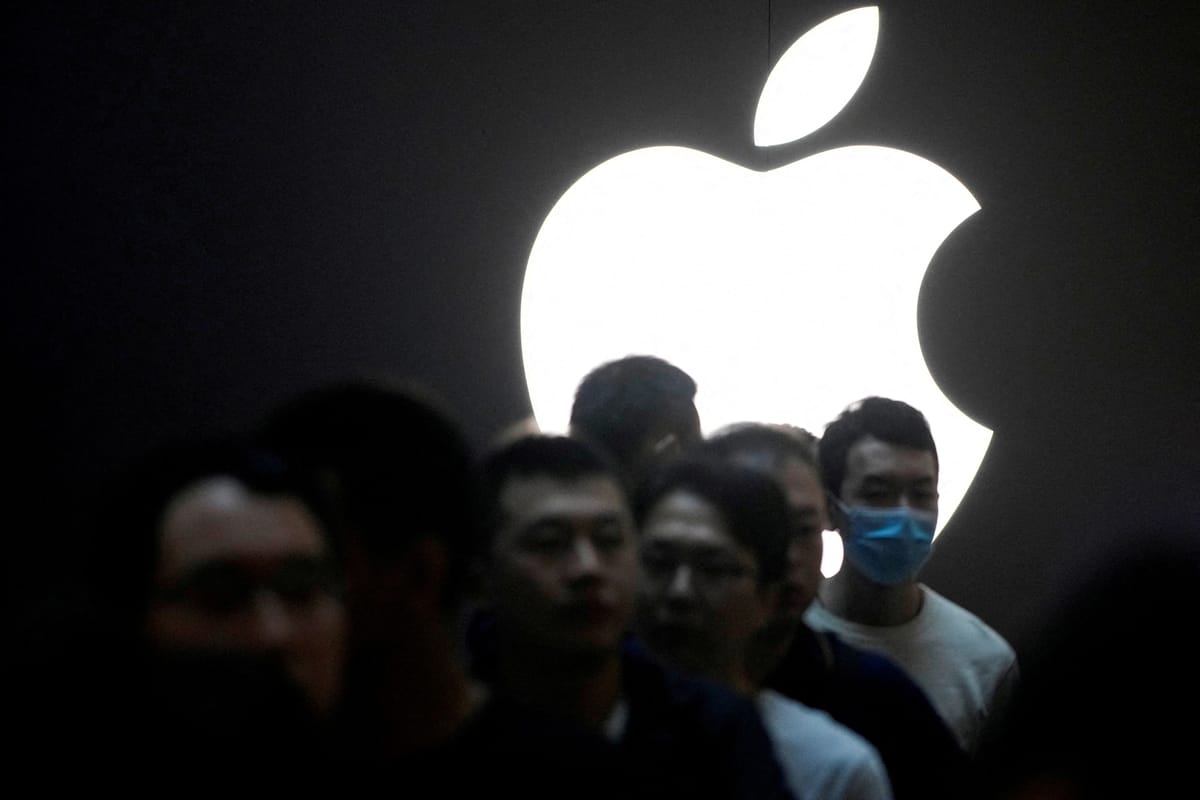iPhone exodus? China has reportedly implemented stricter rules on foreign mobile devices
Reports are saying that companies and government-backed groups in eight provinces now have a new rule – no iPhones or foreign devices at work, according to insiders.

A few minutes every morning is all you need.
Stay up to date on the world's Headlines and Human Stories. It's fun, it's factual, it's fluff-free.
The backstory: Over the past year, tensions between China and the US have risen over a series of issues. For one, the US put curbs on tech exports to Chinese companies, impacting major Chinese players like Huawei and SMIC. These companies faced sanctions due to concerns about the potential military applications of advanced chips.
Meanwhile, China looked to reduce reliance on American tech, supporting domestic companies like Huawei. In August, Huawei launched its advanced 5G smartphone, the Mate 60 Pro. This created waves in the Chinese chip industry, with experts seeing it as a breakthrough in domestically-made chips. The US government has even launched an investigation into the phone to see whether or not the company had managed to skirt those US semiconductor export curbs.
More recently: Last year, China told its government agencies and state-backed companies to switch from foreign computers to domestic ones within two years. This was a strategic move to remove foreign tech from sensitive areas. Later, in September, reports suggested China advised central government employees to avoid using iPhones during work hours. China has restricted foreign devices in the most sensitive government areas for years, but this would indicate and expansion of that policy. In response, Foreign Ministry spokeswoman Mao Ning emphasized that China had not implemented any laws or regulations banning the purchase or use of Apple or other foreign phone brands.
The development: A big change just rocked China's mobile market. Reports are saying that companies and government-backed groups in eight provinces now have a new rule – no iPhones or foreign devices at work, according to insiders. This rule started in September in Beijing and Tianjin and has quickly spread in the past month or two. Insiders say that the rule now covers at least eight provinces, including Zhejiang, Guangdong, Jiangsu, Anhui, Shanxi, Shandong, Liaoning and central Hebei. Instead, workers in these areas have to use local brands. Even smaller companies in smaller cities are doing the same. This could be great news for domestic companies like Huawei, but it could strike a big blow for foreign firms, especially Apple, which gets about one-fifth of its revenue from China.
Key comments:
“China has not issued any laws, regulations or policy documents prohibiting the purchase and use of mobile phones from foreign brands such as Apple,” said Ministry of Foreign Affairs spokesperson Mao Ning at a regularly scheduled briefing in September.
"The only way Apple could draw the ire of Beijing is moving supply chains out of China at a pace or to a degree Beijing feels uncomfortable with," said Evercore ISI strategist Neo Wang in a note. "If that is the case, it shouldn't be a surprise for Beijing to punish Apple by playing the 'security' card excessively. It is unclear whether what we are seeing now is part of this."
"We believe the restrictions have the potential to slow Apple's sales growth in China," said D.A. Davidson analyst Tom Forte. "This could provide an additional challenge for the company, as its revenues from China have already been negatively impacted by a challenging macroeconomic environment in that country."




Comments ()